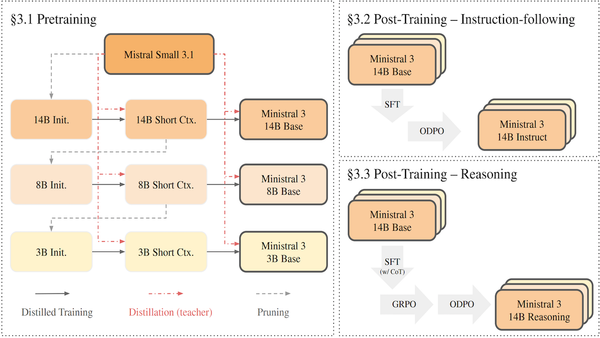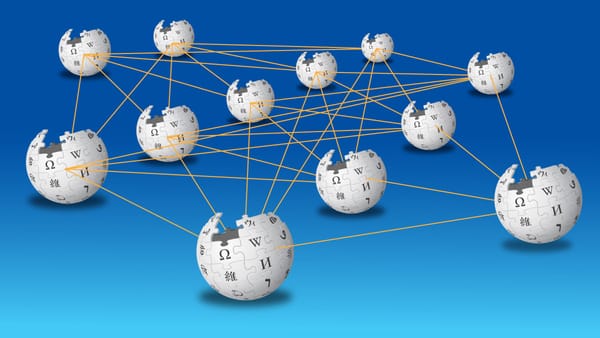European CEOs urge 2-year pause in EU AI Act: DeepSeek-TNG-R1T2-Chimera merges DeepSeek LLMs to cut inference cost in half
How Tencent Hunyuan-A13B offers advanced features and performance in a limited open-weights release. How Alibaba’s Qwen VLo interprets, generates, and alters images. How Hugging Face’s $299–$449 Reachy Mini extends open robotics. How AI saved $500 million at Microsoft.

Welcome back! In today’s edition of Data Points, you’ll learn more about:
- How Tencent Hunyuan-A13B offers advanced features and performance in a limited open-weights release
- How Alibaba’s Qwen VLo interprets, generates, and alters images
- How Hugging Face’s $299–$449 Reachy Mini extends open robotics
- How AI saved $500 million at Microsoft
But first:
European CEOs seek 2-year pause in AI Act enforcement
44 chief executives at Airbus, BNP Paribas, Carrefour, Philips, and other top European companies asked European Commission President Ursula von der Leyen to postpone the AI Act’s general-purpose model rules for two years. They argued that overlapping regulations and a still-unfinished “code of practice” create legal uncertainty that could slow AI deployment and weaken Europe’s competitiveness. A delay would allow regulators to finalize technical standards and give developers time to adapt their systems, reducing compliance risk for companies that build or integrate large language models in the EU. (The Wall Street Journal and Financial Times)
TNG releases weights for DeepSeek-TNG-R1T2-Chimera, a merging of DeepSeek models that cuts inference cost
TNG Technology Consulting, a German firm, built DeepSeek-TNG-R1T2-Chimera by merging DeepSeek-R1-0528, DeepSeek-R1, and DeepSeek-V3-0324. The 671 billion-parameter reasoning LLM achieves about 90 percent of Deepseek-R1-0528’s benchmark performance while trimming output lengths by 60 percent. The team’s assembly-of-experts model-merging method cut response time and GPU cost roughly in half. The release offers a compute-efficient, cost-effective alternative to Deepseek-R1-0528. You can download the weights here under an MIT license. (VentureBeat and Hugging Face)
Tencent releases weights for Hunyuan-A13B with switchable reasoning
Hunyuan-A13B is an 80 billion-parameter mixture-of-experts large language model that activates groups of 13 billion weights at run time and lets users toggle reasoning on or off. It can process inputs of up to 256,000 input tokens and delivers performance that approaches that of larger models on the AIME math exam, GPQA graduate-level science test, and several agent benchmarks. You can download the weights under a license that limits commercial uses to 100 million monthly active users. (The Decoder and Hugging Face)
Alibaba launches closed-weights Qwen VLo for image editing and generation
The tech conglomerate opened a preview of Qwen VLo, a large vision-language model that interprets images, generates new ones, and alters existing ones. Unlike earlier models in the Qwen family, Alibaba did not release weights. Qwen VLo builds on the Qwen-VL line of vision-language models with a progressive left-to-right image generator, natural-language image editing, and support for various image resolutions. The model can swap image backgrounds, transfer image styles, and edit image objects. You can try it via a web interface. (Tech in Asia and GitHub)
Hugging Face offers Reachy Mini robot kits
Hugging Face is accepting orders for Reachy Mini, an open desktop robot kit that users can assemble and program in Python. Reachy robots feature code and some hardware schematics that are freely available for users to use and modify. The Lite version costs $299, while the Wireless version costs $449 and includes a Raspberry Pi 5, Wi-Fi, battery power, camera, microphones, and access to models. Shipments of Lite units start in late summer, with Wireless units following in fall. (Hugging Face and TechCrunch)
Microsoft links AI to $500 million in cost savings amid ongoing layoffs
In-house AI tools trimmed Microsoft’s call-center costs by more than $500 million last year, the company told staff. Chief Commercial Officer Judson Althoff said Copilot now writes 35 percent of the code for new products, handles interactions with some small customers, and boosts revenue per salesperson by 9 percent. The internal briefing followed layoffs that have eliminated about 15,000 jobs this year, most recently sales and other customer-facing roles. (Bloomberg and TechCrunch)
Still want to know more about what matters in AI right now?
Read this week’s issue of The Batch for in-depth analysis of news and research.
This week, Andrew Ng warned that rushed state-level AI regulation could harm innovation. He called for giving policymakers more time to understand AI before passing laws driven by fear.
“While there is a role for AI regulation, it is when the technology is new and poorly understood that lobbyists are most likely to succeed at pushing through anti-competitive regulations that hamper open-source and other beneficial AI efforts.”
Read Andrew’s full letter here.
Other top AI news and research stories we covered in depth:
- Anthropic tested how LLMs respond to ethical dilemmas, forcing models to choose between failure and misbehavior — including scenarios involving executive blackmail.
- Beewise’s robotic beehive powered by AI is designed to monitor and protect pollinators.
- Walmart shared new details on its Element platform, an internal system for building and scaling AI applications across its global operations.
- Researchers advanced web agent training by generating a large-scale synthetic dataset tailored to real-world online tasks.




